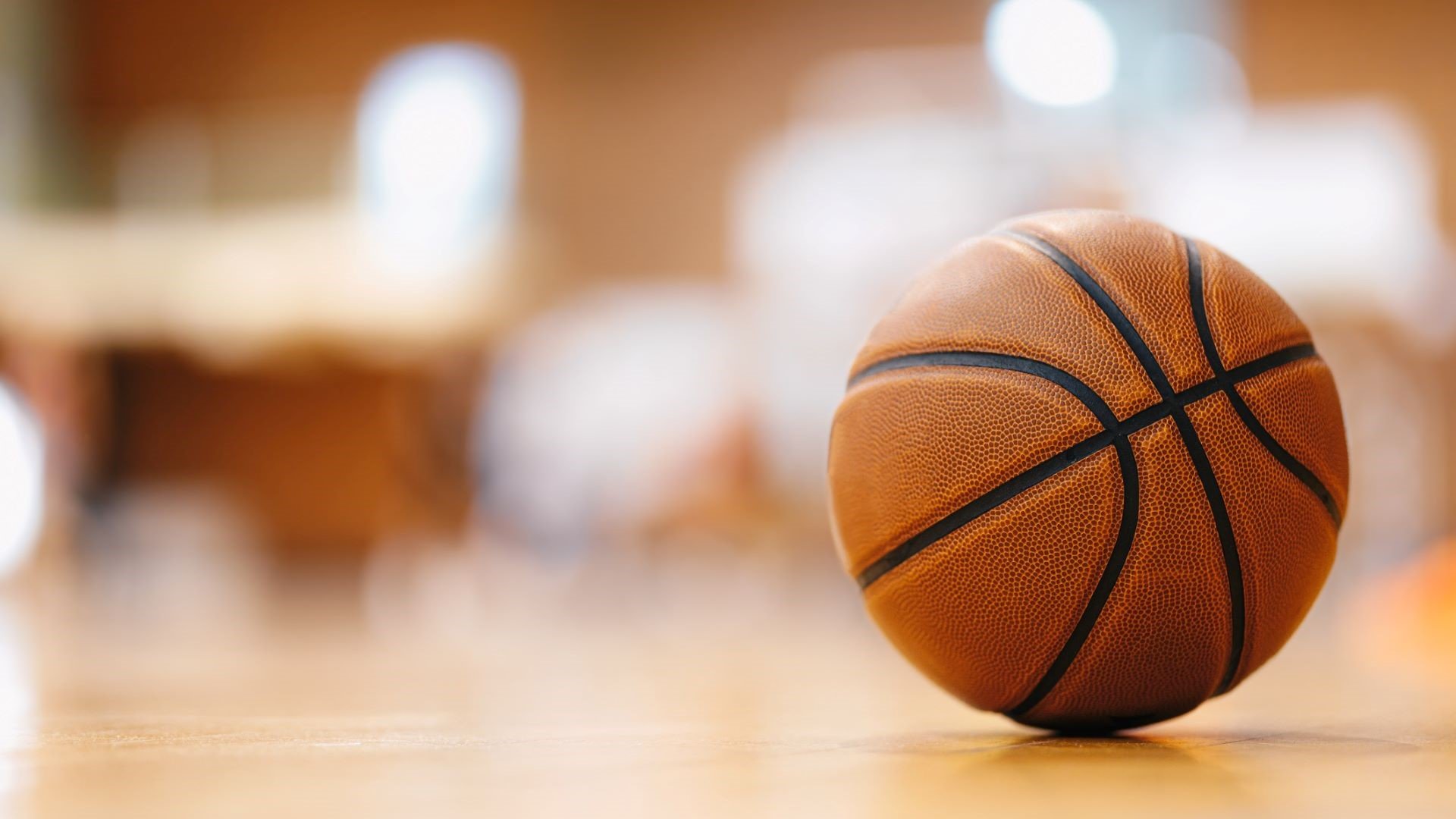Name, Image, Likeness; Rule Changes; and Unionization: Higher Ed Athletics

Higher education athletics continue to evolve. Student-athletes are now allowed to receive some forms of compensation without sacrificing their amateur status, and broader conversations are underway about whether athletes should receive revenue sharing and pay.
Below are some of the most unsettled topics in higher education athletics.
Name, Image, and Likeness
Name, image, and likeness (NIL) is a shorthand term for the concept of student-athletes’ identities being used for commercial or promotional purposes. For example, when a basketball jersey is sold with a student’s last name and number, it uses the student’s NIL. Historically, the NCAA and schools could make money from students’ identities, but the athletes couldn’t. Over the past few years, courts, states, and the NCAA have determined students can receive compensation for their NIL.
Timeline of Changes
2015:
O’Bannon v. NCAA
Former UCLA athletes including basketball star Ed O’Bannon alleged the NCAA’s amateurism rules preventing student-athletes from using their NIL for compensation were an illegal restraint on trade under the Sherman Anti-trust Act. The U.S. District Court found the NCAA’s amateurism rules were an unlawful restraint of trade and let NCAA member schools give student-athlete scholarships up to the full cost of attendance. The U.S. Supreme Court declined to hear the appeal, thus upholding the decision.
2019:
Some states enact legislation allowing student-athletes to be compensated for their NIL.
2021:
NCAA v. Alston
The same trial court from O’Bannon v. NCAA heard this case, which combined several separate but related claims challenging the NCAA’s compensation restrictions. The U.S. Supreme Court heard an appeal and found some NCAA rules violated the Sherman Anti-trust Act.
Following the Alston decision, the NCAA announced college athletes would have the opportunity to benefit from their name, image, and likeness and issued an Interim NIL Policy.
This policy includes the following limits:
- Third parties can now pay athletes for their NIL and endorsements without the athletes violating amateurism rules, however schools still cannot pay their athletes — for NIL or otherwise.
- Schools in states with NIL laws should follow their state laws.
- Athletes cannot receive payment for work they didn’t do.
- NIL compensation cannot be made contingent upon enrollment at a specific school. NIL deals cannot be used for recruiting purposes.
- Athletes cannot be directly compensated for athletic participation or achievement, even by third parties.
2024:
NCAA Division I Disclosure and Transparency Rules
The NCAA’s Division I Council approved NIL disclosure and transparency rules in January 2024. These rules took effect for Division I schools on Aug. 1, 2024:
- Voluntary registration for third-party NIL service providers. The NCAA established a voluntary registration process for NIL service providers to serve as a centralized source for providers interested in working with student-athletes.
- Disclosure requirements. Students (prospective and current) must disclose to their school information related to NIL agreements exceeding $600 in value, no later than 30 days after entering or signing the NIL agreement. Schools report this deidentified data to the NCAA at least twice per year so the NCAA can develop an aggregated database allowing student-athletes to better understand NIL agreement trends.
- Standardized contracts. The NCAA works with schools to provide student-athletes with robust education on contractual obligations.
- Comprehensive NIL education. The NCAA will develop a comprehensive plan to provide ongoing education and resources to support student-athletes.
NCAA Division I School Assistance Rules
The NCAA’s Division I Council approved additional rules in April 2024 allowing schools to assist with NIL activities.
The school assistance rules have these effects:
- Define an NIL entity as an individual, group of individuals, or any other entity organized to support the athletics interest of an NCAA school by compensating student-athletes for NIL activities.
- Allow schools to identify potential NIL opportunities for student-athletes.
- Allow schools to facilitate deals between student-athletes and third parties.
- Allow increased school support of student-athlete NIL activities.
- Require entities associated with a school to be subject to the same standards as the school.
- Remove national restrictions on the level of support provided by schools and their third-party service providers to student-athletes pursuing NIL opportunities.
NCAA Division I Transfer Rules
The NCAA’s Division I Council also adopted transfer rules in April 2024. The transfer rules require student-athletes who transferred institutions more than once to sit out a year of competition.
However, on May 30, 2024, the U.S. Department of Justice and the NCAA submitted a proposed consent decree in a federal antitrust lawsuit challenging the transfer rules. If approved, the proposed consent decree would prevent the NCAA from enforcing the April 2024 transfer rules or implementing similar rules. It also would add a year of eligibility for qualifying college student-athletes who previously were deemed ineligible due to the transfer rule. As of early 2025, the proposed decree is not final. In October 2024, the NCAA released a new guide for student-athlete transfers at four-year colleges.
NCAA Student-Athlete Core Guarantees
On Aug. 1, 2024, the NCAA implemented new Division I student-athlete core guarantees that include expanded scholarship protections. These protections state that schools can’t reduce, cancel, or fail to renew athletics aid for athletics reasons, such as:
- Injury
- Physical or mental illness
- Athletic ability or performance
- Contribution to team success
- Roster management decisions
State of Tennessee and Commonwealth of Virginia v. NCAA
Tennessee and Virginia filed a lawsuit in January 2024 alleging that the NCAA’s NIL policies violate U.S. antitrust law. A federal judge granted a preliminary injunction for the states barring the NCAA from enforcing an NIL rule prohibiting compensation for recruits. The parties reached a preliminary settlement in January 2025. A final settlement, along with a description of the settlement terms, is expected in March 2025.
Legislation and Lawsuits
With ongoing legislation and lawsuits, the potential impacts of NIL compensation continue to expand. In October 2024, a federal judge granted preliminary approval to the House v. NCAA proposed settlement. Terms of the proposed settlement include payments to former athletes for NIL rights and revenue-sharing distributions to current student-athletes. A final approval hearing is scheduled for April 7, 2025.
In Rashada v. Hathcock, a current student-athlete at the University of Georgia (who formerly played at the University of Florida) alleges the University of Florida’s head football coach fraudulently induced him to attend by offering a $13 million NIL deal that was rescinded after signing. The athlete also alleged a different institution offered him a $9.5 million NIL deal that he turned down to attend the University of Florida. The court heard oral arguments on a motion to dismiss in December 2024.
Many states have created NIL laws. To learn more about NIL legislation, see the Saul Ewing NIL Legislation Tracker and Troutman Pepper Locke State and Federal Legislation Tracker.
Title IX
Non-NIL laws also are complicated by NIL efforts. Title IX of the Education Amendments Act of 1972 (Title IX) forbids sex discrimination by educational institutions that receive federal financial assistance, including in institutional athletics programs. At one institution, a former women’s team is challenging its removal under Title IX. One of its allegations is that the institution spent more publicity money on the men’s teams, thereby limiting opportunities for the women’s teams to receive NIL sponsorships and dollars and violating Title IX. As NIL expands, this allegation may become more common in Title IX athletics lawsuits.
A January 2025 Fact Sheet from the Department of Education Office for Civil Rights (OCR) clarified how OCR will evaluate equal opportunity in a school’s athletic program under Title IX when student-athletes receive NIL-related compensation and benefits.
The Trump administration revoked the Biden administration fact sheet in February with a statement from the Acting Assistant Secretary for Civil Rights that he does not interpret Title IX as applying to NIL-related compensation.
Other Athletics Issues
Several other recent athletics developments also warrant closer observation.
Employment and Unionization Efforts
In Johnson v. NCAA, former student-athletes from multiple institutions argued they should have been classified as employees and entitled to minimum wage. This situation is ongoing.
Although the Dartmouth College men’s basketball team voted to unionize and several University of Southern California athletics teams alleged they were misclassified as student-athletes rather than employees in National Labor Relations Board claims, both efforts were dropped in late 2024.
Transgender Athletes and Title IX
In February 2025, the Trump Administration released an executive order directing the Department of Education to interpret Title IX as limiting competition in women’s sports to student-athletes assigned female at birth only. The order instructs the Department of Education to prioritize related Title IX enforcement actions. OCR has launched several investigations related to this issue. Also in February 2025, the NCAA updated the Association’s participation policy for transgender student-athletes with the same limitations, also noting that “student-athlete(s) assigned male at birth may practice on an NCAA women’s team and receive all other benefits applicable to student-athletes.” The NCAA policy also specified that for men’s sports “regardless of sex assigned at birth or gender identity, a student-athlete may participate (practice and competition).” Litigation challenging the executive order is expected.
This issue has been the subject of ongoing rulemaking and litigation in recent years. In April 2023 the Department of Education (ED) released a notice of proposed rulemaking on athletic eligibility under Title IX providing guidance for the inclusion of transgender athletes. The proposed rules were formally withdrawn by the Biden Administration.
In a March 2024 federal lawsuit, Gaines v. NCAA, college swimmers alleged the NCAA violated their Title IX rights by allowing a transgender woman to compete at the national championships.
In a November 2024 federal lawsuit, college volleyball players in the Mountain West Conference asked for a San Jose State University volleyball player to be declared ineligible for the conference tournament because of assertions that the volleyball player is transgender. The judge rejected an emergency injunction asking the court to stop the athlete from playing in the tournament. The injunction denial was upheld by an appeals court.
In December 2024, the Texas attorney general filed a lawsuit against the NCAA alleging that the NCAA is violating the state’s Deceptive Trade Practices Act by allowing transgender women to participate in women’s athletic events and by not identifying which athletes are transgender.
Risk Management Steps
As you review these developments and the potential impacts on your campus, consider taking these risk management actions:
- Consult legal counsel. Higher education athletics and related rules will continue to change. Before taking any major action in your athletic department, consult with legal counsel to determine the effects of federal and state law and NCAA regulations.
- Train athletes, athletics staff, and coaches. If your legal counsel approves, offer training for athletes and staff identifying what it means to be an athlete at your institution. Include guidance on athletics risk management, reporting systems that are in place for prohibited conduct, and NIL allowances and prohibitions.
- Keep sponsorship separate from schools. For now, the court decisions and NCAA rules reinforce that schools aren’t allowed to pay athletes for their NIL.
More From UE
Athletics Benefits and Name, Image, Likeness: The Year in Review
Additional Resources
Husch Blackwell: College Athletics: A Look at the Continued (R)Evolution
Husch Blackwell: Athletics on an Axis
NCAA: Name, Image and Likeness Interim Policy Resources
About the Author
-

Melanie Bennett, Esq., ARM-E
Senior Risk Management Counsel
In her role on UE’s Risk Research team, Melanie dives into timely topics affecting education. Her areas of expertise include protecting minors, enterprise risk management (ERM), technology accessibility, and athletics. Prior to joining UE, she interned at the U.S. Department of Education’s Office for Civil Rights. Melanie serves on the Higher Education Protection Network’s (HEPNet’s) Board of Directors.